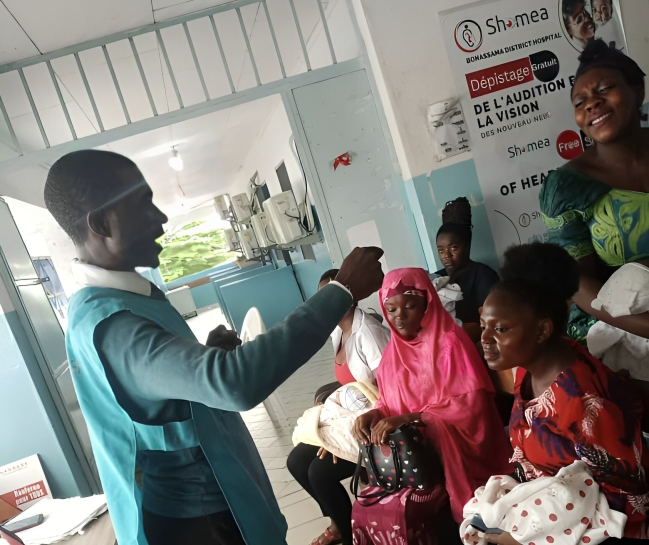Dr. Ryan Paul | Advisory Board Chairman
Advocacy and awareness play crucial roles in bringing about positive change in any society. In the context of new-born screening and rehabilitation, it is important to advocate for the routine implementation of these programs and raise awareness of their significance. Shomea, a non-for-profit association consisting of specialized doctors, aims to address this need specifically in Sub-Saharan Africa.
Neonatal screening programs are essential for identifying hearing or visual impairments in new-born babies. By implementing such programs, healthcare providers can ensure that appropriate and timely aids and interventions are provided to babies who need them. This is vital for ensuring that these infants have equal opportunities in life and career, despite their impairments.
The effective implementation of neonatal screening programs also has broader societal benefits. For instance, it can contribute to the reduction of road traffic accidents. By identifying and addressing visual impairments early on, individuals affected by these impairments can be provided with the necessary aids and support to ensure their safe driving. This not only protects their own well-being but also improves road safety for everyone.
The focus on rehabilitation and providing support to individuals with physical disabilities and orphans is another important aspect of Shomea’s mission. By advocating for access to rehabilitation services, Shomea aims to promote inclusivity and create equal opportunities for individuals with disabilities. This can help remove the stigma associated with these impairments and foster a more inclusive society where everyone can contribute and thrive.
Education and sensitization campaigns also play a critical role in changing societal perceptions. By raising awareness about hearing and visual impairments, these campaigns contribute to breaking down barriers and eliminating taboos. They help in dispelling myths and misconceptions and promote understanding and acceptance of individuals with these impairments. Through targeted education efforts, society can move towards a more empathetic and inclusive mindset, where individuals with disabilities are no longer considered outcasts.
Advocacy and awareness are key to the successful implementation of new-born screening and rehabilitation programs. By advocating for routine implementation, Shomea aims to ensure that every baby born with hearing or visual impairments receives appropriate aids and support. The impact of such efforts extends beyond the individual level, with potential benefits in reducing poverty, reducing accidents and improving the lives of orphans and those that are uniquely abled. Education and sensitization campaigns contribute to eliminating stigma and promoting inclusivity, allowing individuals with impairments to live fulfilling lives and participate fully in society.

